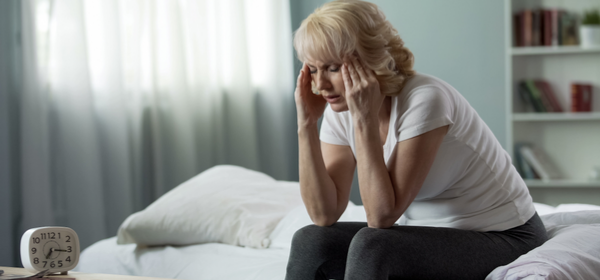More Australians aged over 50 worry about health compared with anything else, yet over half do not do the recommended minimum of 30 minutes of daily exercise, and one-third do less than an hour a week, according to new research.
And while almost three-quarters of older Australians rate their diets as healthy or very healthy, those who said their diet was very unhealthy were likely to be highly vulnerable, including being unemployed, having a yearly income of less than $30,000, and/or a disability.
The survey of 2562 Australians was commissioned by the Federation of nine Councils on the Ageing (COTA) and gave a generally positive view of the lives of older Australians.
There are 7.9 million Australians aged 50 or over – almost one-third of the population. Nearly 4.3 million are aged 50–64 and over 3.6 million are at least 65.
A high proportion (78 per cent) rated their quality of life as good (seven or more out of 10), and 70 per cent felt positively about what the future held.
Women aged 50-plus were faring better than men when it came to overall happiness, according to the report, while men reported being in a better financial position.
In other key findings:
- More than half felt that the rising cost of living was leaving them behind, and one in five did not have money for leisure or social activities.
- Thirty-two per cent mentioned health issues as the thing they were most concerned or worried about, with physical health the key factor influencing quality of life perceptions.
- Twenty-nine per cent of those still working did not think they would ever retire.
- Thirty-seven per cent did not have private health insurance.
- Thirty-two per cent felt younger than their age, with more than half feeling at least 10 years younger than they were, but 46 per cent felt less valued by society than they did when they were younger.
One in three older Australians said they had experienced age discrimination and 22 per cent had experienced employment-related discrimination.
“This indicates that there is a real need for the value of older people in the workforce to be better communicated and more appreciated in the workforce and by employers,” the report concluded. “There is also a need for older people to have clear recourse to assistance in the event of discrimination, especially when seeking employment …”
When asked if they felt their finances would last for the rest of their lives, more than half (53 per cent) gave “quite a high rating of seven or more out of 10”. However, that left a big proportion (47 per cent) that did not feel secure.
Financial insecurity was greatest among those: who are renting (45 per cent), on household incomes of less than $30,000 (43 per cent), had a disability (38 per cent), singles (35 per cent), live in regional areas (30 per cent), are in their 50s (33 per cent) or are female (29 per cent).
Researchers noted that 15 per cent of those surveyed spontaneously asked COTA to lobby for an increase to the Age Pension.
Almost three-quarters felt that improving the affordability of services such as energy, internet or phone contracts could make a great deal of difference.
The study found that the expected age of retirement increased as household income level decreased. Those earning less than $30,000 expected to retire at 70, while those earning $100,000 or more expected to retire at 65.
Unpaid work was a common theme. More than half (56 per cent) did, on average, 10.5 hours per week.
Is health your number one concern? Have you experienced ageism in the community or at work?
Related articles:
What makes you sick
Will your eyesight last?
Should you worry about dizziness?

